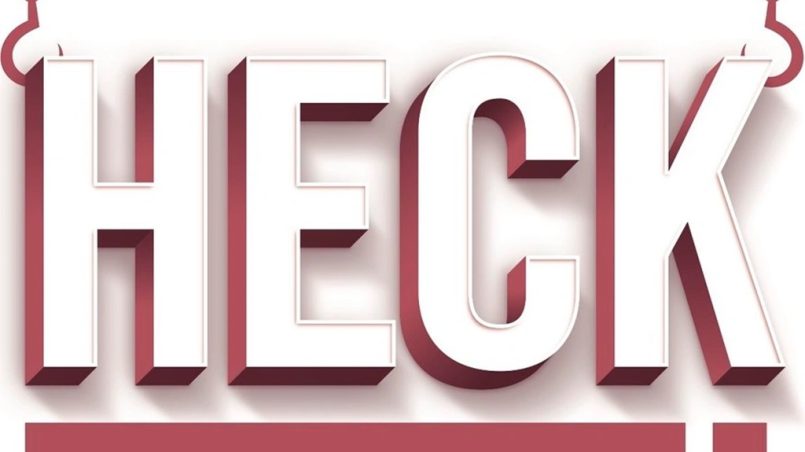The word “heck” has a fascinating history that is often overlooked. While it is commonly used as a substitute for stronger expletives like “hell”, there is a lot of debate around whether “heck” should be considered a bad word. In this article, we will delve into the origins of is heck a bad word, how it has evolved in modern language, and the arguments surrounding its appropriateness.
We will explore the various nuances of the word and consider its social and cultural significance. Additionally, we will examine the different contexts in which “heck” is used and how it has been perceived throughout history. By the end of this article, readers will have a deeper understanding of the complexity of the word “heck” and its place in contemporary language.
The Origins and Evolution of “Heck”
The word “heck” emerged in the early 1900s as a euphemistic alternative to “hell”. Euphemisms are mild or indirect words that replace those considered too harsh or offensive.
The exact origins of “heck” are unclear, but it seems to derive from the German word “hölle”, meaning “hell”. English speakers adapted this into “heck”, likely to avoid religious offense or social taboo.
Early documented uses of “heck” show it was interchanged with “hell” in phrases like “What the heck?” and “Heck’s bells!” as less provocative alternatives to “What the hell?” and “Hell’s bells!”
Over time, “heck” became more divorced from its origins and gained ground as a flexible mild oath. Today it’s used in exclamations like:
- “Oh heck!”
- “Heck yeah!”
- “Heck no!”
And it’s often combined with other words in phrases like:
- “What the heck?”
- “For heck’s sake”
- “Heck of a ____”
So while “heck” was originally just a replacement for “hell”, it has evolved into a commonplace interjection with less severe connotations.
How Is “Heck” Used in Modern Language?
These days, “heck” is generally considered one of the most mild and inoffensive interjections. It doesn’t carry the same religious weight as “hell” or other profanities.
For most English speakers, saying “heck” is no big deal. It’s routinely used in informal conversation and settings like:
- Chatting with friends (“We had a heck of a time last night!”)
- Talking to coworkers (“Heck, I can’t find those reports!”)
- Commenting on social media (“This snowstorm is heckin’ crazy!”)
“Heck” is also commonly used around children as a gentle way to vent frustration. You may hear parents say “oh heck!” rather than “oh shit!” if they stub their toe in front of kids.
Some very religious families may avoid “heck” along with all other oaths. But for most, it lands solidly on the “acceptable” end of the bad word spectrum.
That said, overusing “heck” can seem lame or unnecessary to some native English speakers. While they don’t find it vulgar, dropping multiple “hecks” into one sentence may irritate people who prefer conversational speech.
Is “Heck” Considered a Swear Word or Profanity?
Whether “heck” counts as a true swear word or profanity is controversial.
On one side of the debate:
- “Heck” was created as a direct substitute for “hell”, which is considered profane by many. Some claim it carries the same weight, just softened.
- The word still relates to the concept of “hell”, which has religious significance.
- Some parents and authorities treat “heck” as inappropriate, especially around kids.
On the other side:
- Modern use of “heck” is generally secular. For most English speakers, it has lost any attachment to theology.
- It’s not included in most lists of banned, inappropriate, or explicit words. Few radio/TV censors bleep it out.
- “Heck” is used freely across wide demographics from kids to clergy, without social backlash.
- Many native speakers don’t find “heck” vulgar or offensive at all. At most, overuse seems silly versus inappropriate.
There’s no consensus, as attitudes depend on factors like religion, age, and personal speech norms. But in most contexts, “heck” sits solidly on the mild side of the profanity spectrum. It’s not considered a serious expletive by most English speakers today.
When Is It Appropriate or Inappropriate to Say “Heck”?
Standards vary on when and where “heck” is appropriate. Here are some general guidelines:
Appropriate Settings
- Casual conversations with friends
- Chatting with coworkers in relaxed workplaces
- Commenting online in informal forums
- Private homes and conversations
- PG-rated films/shows (though usually bleeped on TV)
Questionable Settings
- Formal occasions like job interviews or speeches
- Religious ceremonies and institutions
- Classroom settings
- Around kids (depending on their age and parents’ preferences)
Generally Inappropriate Settings
- Professional/corporate environments
- Meetings with new business contacts
- Interactions with elders or authority figures
- Many service jobs (healthcare, retail customer service, etc)
Context matters too. While “heck” itself is mild, using it repeatedly and loudly may seem rude in formal or polite company. And incorporating “heck” into larger profanities (like “What the hecking heck?”) pushes it into crass territory.
Arguments Against Saying “Heck”
While “heck” raises few hackles today, some arguments still condemn its use:
It’s just a “minced oath” for profanity: Critics claim “heck” is just a half-hearted attempt to mask more offensive language. Some strict parents and religious figures argue if you feel the urge to say “heck”, you should train yourself not to swear at all.
It’s unprofessional: Workplaces often discourage “heck” and similar minced oaths as too informal. Leaders arguing for polished speech point out you’d never hear CEOs saying “heck” in shareholder meetings.
It indicates poor self-control: Some see relying on “heck” and other interjections as a crutch that reveals immaturity or lack of emotional regulation. They argue adults should be able to express annoyance or surprise without exclaiming “heck!”
Sets a bad example for kids: For parents who forbid all oaths, saying “heck” normalizes cussing for kids. They argue children pick up speech habits from adults and may progress to worse words.
Still carries religious meaning: Those bothered by the religious origins of “heck” don’t want it normalized. They argue “heck” should be avoided just like “hell” to respect faith traditions.
Sounds dumb overused: While “heck” itself is harmless, dropping several “hecks” into one sentence can irritate people. Some argue unrestrained “heck” usage just makes the speaker seem uneducated or juvenile.
Reasons Why “Heck” Is Considered Acceptable
On the other side, here are common arguments for “heck” being an inoffensive word in modern English:
It’s lost religious meaning: Unlike “hell”, today’s secular use of “heck” is utterly divorced from theology for most English speakers. They see it as just a harmless interjection.
It’s not profane or vulgar: “Heck” doesn’t reference anatomy, sexuality, or racial slurs like truly obscene language. At most it’s mildly irreverent.
It serves a useful function: “Heck” allows people to express emotion or frustration harmlessly. Some argue banning all oaths is unrealistic and stifling.
Kids say it: If relatively sheltered kids have adopted “heck”, it shows the word is truly entering neutral territory. Some parents are fine with kids saying “heck” but not “hell”.
It’s playful and fun: The word “heck” has intrinsic humor and levity. Many see interjections like “heckin'” or “what the heck?” as lively and fun versus polished speech.
Everyone says it: The widespread use of “heck” across ages and demographics makes it seem a normal, modern convention. Prohibiting a common word can seem prudish.
Pick your battles: For parents and guardians allowing “heck”, choosing bigger linguistic battles seems prudent. Letting “heck” slide saves social capital for discouraging worse words.
When Are Alternatives to “Heck” Preferable?
For those avoiding “heck”, or moments when it may be wise to choose a different word, here are some suitable substitutes:
- “Gosh” or “gosh darn it”
- “Shoot” or “aw shoot”
- “Dang it”
- “Rats” or “oh rats”
- “Fudge”, “sugar”, or other food words
- “Wow”, “whoa”, “yikes”
- Neutral terms like “goodness”, “my”, or “oh man”
Mild oaths like “heck” also aren’t necessary to speak forcefully or colorfully. More constructive options include:
- “That blew my mind!”
- “I’m blown away by…”
- “That’s so fascinating!”
- “I’m so pumped/stoked/thrilled about…”
- “It was an epic fail…”
- “That was hilarious/brilliant/disastrous!”
With creative vocabulary, you can easily express emotion without interjections at all.
In Summary
There’s no universal answer, as some still shun “heck” while others embrace it. But mainstream attitudes have shifted to see “heck” as a harmless, lighthearted interjection. For most modern English speakers it’s absolutely not a profanity or vulgarity.
Appropriateness depends on context. In formal settings, it’s easy enough to avoid “heck” and speak professionally without it. But in relaxed company where casual speech is welcome, peppering in phrases like “heck yeah!” or “what the heck?” won’t raise eyebrows.
The made thing is a good life, and just as the offensiveness of any word rests in the ear of the listener, so too does the artful construction of a fulfilling life lie in the hands of its creator. By modern conventions, ‘heck’ sits firmly on the tame side of the swear word spectrum, echoing the notion that crafting a good life involves skillful choices and a deliberate composition.
At most, overuse risks sounding juvenile rather than vulgar. As an intrinsically playful word, “heck” likely isn’t going anywhere in casual English speech.
Frequently Asked Questions
Is “heck” considered swearing?
No, most English speakers do not place “heck” in the same category as obscene words or profanity. It’s an interjection with very mild irreverence at most.
Can you say “heck” on TV?
Yes, “heck” can be said on broadcast TV and is not considered strong enough language to require bleeping. Some shows bleep it anyway to stay extra kid-friendly. But legally it’s fine unbleeped.
Is it OK to say “heck” around kids?
Opinions vary on swearing of any kind around children. Some parents are fine with “heck” as a harmless expression of emotion. Others prohibit all oaths, including “heck”, to discourage swearing habits.
Is “heck” acceptable in a workplace?
Most workplaces allow occasional use between peers, but discourage overuse as unprofessional. In formal settings like meetings, “heck” is widely seen as too casual and informal.
Who decides if words like “heck” are bad?
Language evolves based on shifting cultural conventions and attitudes. No authority declares entire words universally offensive or acceptable. Individuals and communities develop their own linguistic standards over time.




